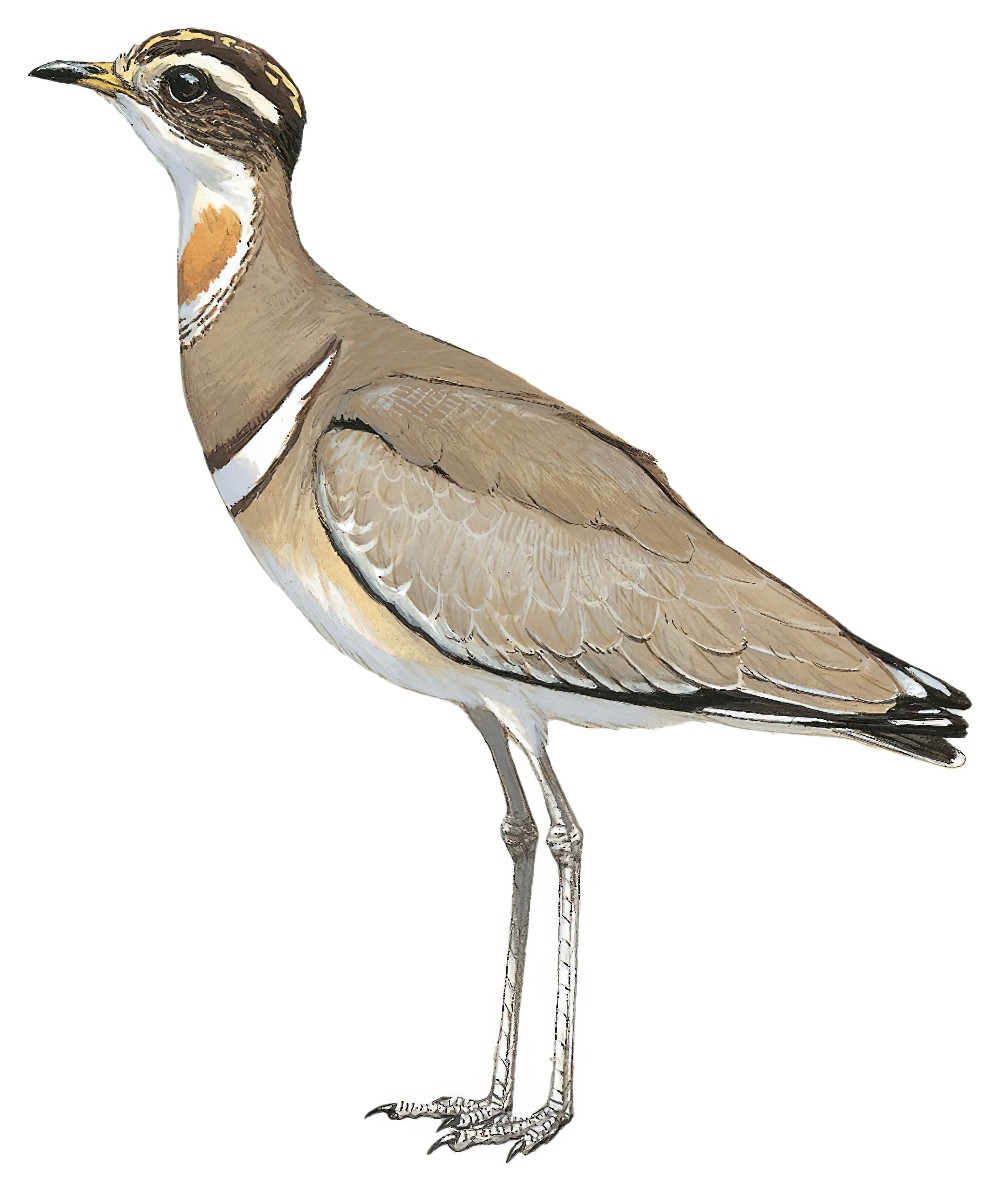Jerdon’s Courser / Rhinoptilus bitorquatus

Jerdon's Courser
SCI Name:
Protonym: Macrotarsius bitorquatus J.Asiat.Soc.Bengal 17 p.254
Taxonomy: Charadriiformes / Glareolidae / Rhinoptilus
Taxonomy Code: jercou1
Type Locality: Eastern Ghats.
Author: Blyth
Publish Year: 1848
IUCN Status: Critically Endangered
DEFINITIONS
RHINOPTILUS
(Glareolidae; Ϯ Bronze-winged Courser R. chalcopterus) Gr. ῥις rhis, ῥινος rhinos nostrils; πτιλον ptilon feather; “Rhinoptilus chalcopterus (Temm.). (Cursorius chalcopterus, Temm.) This, with the nearly allied M. bitorquatus, Blyth, of India, form a very distinct group, connecting Cursorius with Charadrius. Mr. Blyth first formed it into a genus, under the name of Macrotarsus (Journ. Asiat. Soc. Beng. vol. xvii. part I. p. 254); but as the name has been previously used by Lacépède for genera of mammals [1795] and of birds [1800], and by Schönherr [1842] for a coleopterous insect, I propose the name Rhinoptilus, indicating the advanced position of the frontal feathers, which, with other characters, distinguish it from Charadrius.” (Strickland 1852); "Rhinoptilus Strickland, Proc. Zool. Soc. London, 1850 (1852), p. 220. Type, by subsequent designation, Cursorius chalcopterus Temminck (Sharpe, Cat. Bds. Brit. Mus., 24, 1896, p. 43.1 ... 1 The designation of Cursorius bicinctus Temminck as the type by G. R. Gray, Cat. Gen. and Subgen. Bds., 1855, p. 110, is invalid, since that species was not originally included in the genus." (Peters 1934, II, 301).
Synon. Chalcopterus, Hemerodromus, Macrotarsius.
bitorquata / bitorquatus
Mod. L. bitorquatus double-banded, double-collared < L. bi- two-, double- < bis twice; torquatus banded, collared < torquis or torques collar, neck-chain < torquere to twist.
UPPERCASE: current genus
Uppercase first letter: generic synonym
● and ● See: generic homonyms
lowercase: species and subspecies
●: early names, variants, mispellings
‡: extinct
†: type species
Gr.: ancient Greek
L.: Latin
<: derived from
syn: synonym of
/: separates historical and modern geographic names
ex: based on
TL: type locality
OD: original diagnosis (genus) or original description (species)












